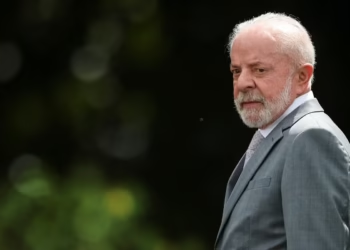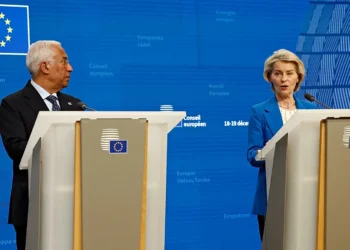BERLIN (Realist English). Germany has reversed its decades-long role as a moderating force on European migration policy, with Chancellor Friedrich Merz positioning the country at the forefront of the EU’s hardline turn on asylum and deportation measures.
The shift signals a dramatic recalibration of German leadership in the EU, as Berlin now champions restrictive migration policies once seen as politically untenable — including deportations to third countries and offshore asylum processing. The change comes amid intense domestic pressure from the far-right Alternative for Germany (AfD), now the Bundestag’s largest opposition party.
“We want to make it clear that Germany is no longer in the brakeman’s cab when it comes to migration issues in Europe,” Interior Minister Alexander Dobrindt said last week, speaking from the summit of Zugspitze, Germany’s highest mountain, where he hosted like-minded ministers from Austria, Denmark, and Poland — notably excluding Southern European states.
Denmark’s immigration minister Kaare Dybvad welcomed the shift: “Germany is leading in some of these very important talks. We’re happy about that.”
The European Commission has also expressed approval. EU Migration Commissioner Magnus Brunner told POLITICO the move could accelerate implementation of long-delayed migration reforms: “If Germany contributes more, we’ll make progress faster.”
From holdout to spearhead
Under former Chancellor Olaf Scholz, Germany played a balancing role between Southern EU countries overwhelmed by arrivals and Northern states demanding stricter controls. Under Merz, Berlin is now more closely aligned with Central and Northern Europe’s security-first approach, increasingly willing to press national interests over bloc-wide consensus.
Analysts note that Germany’s support removes a major obstacle to proposals like third-country deportation schemes, once politically unthinkable on the continent. Merz has publicly praised the UK’s abandoned Rwanda model as an example to consider.
“This shift moves the goalposts of what is considered mainstream European migration policy,” said Ravenna Sohst of the Migration Policy Institute. “Germany used to defend the post-war asylum framework. That’s no longer the case.”
Internal fault lines
Despite the hardening tone, Merz’s coalition remains divided. The centre-left SPD, his junior partner in government, has voiced unease over recent moves — including the suspension of family reunification for Syrians, freezing of Afghan resettlement programmes, and expansion of border controls, which strained relations with Poland.
“There isn’t a single person in the SPD’s parliamentary group who is a fan of these security-oriented migration measures,” said SPD MP Rasha Nasr.
Asylum arrivals in Europe are decreasing, but the issue remains politically explosive. When the Bundestag returns in autumn, lawmakers will debate further restrictive measures, including expanding the list of “safe” deportation destinations and cutting legal assistance for migrants facing removal.
Analysts say these proposals could trigger renewed infighting within the coalition, and potentially delay Germany’s ambition to lead Europe’s migration realignment.
“This is one of the most sensitive issues in the coalition,” said Victoria Rietig of the German Council on Foreign Relations. “It’s not guaranteed that Merz will get his way — either at home or in Brussels.”


















